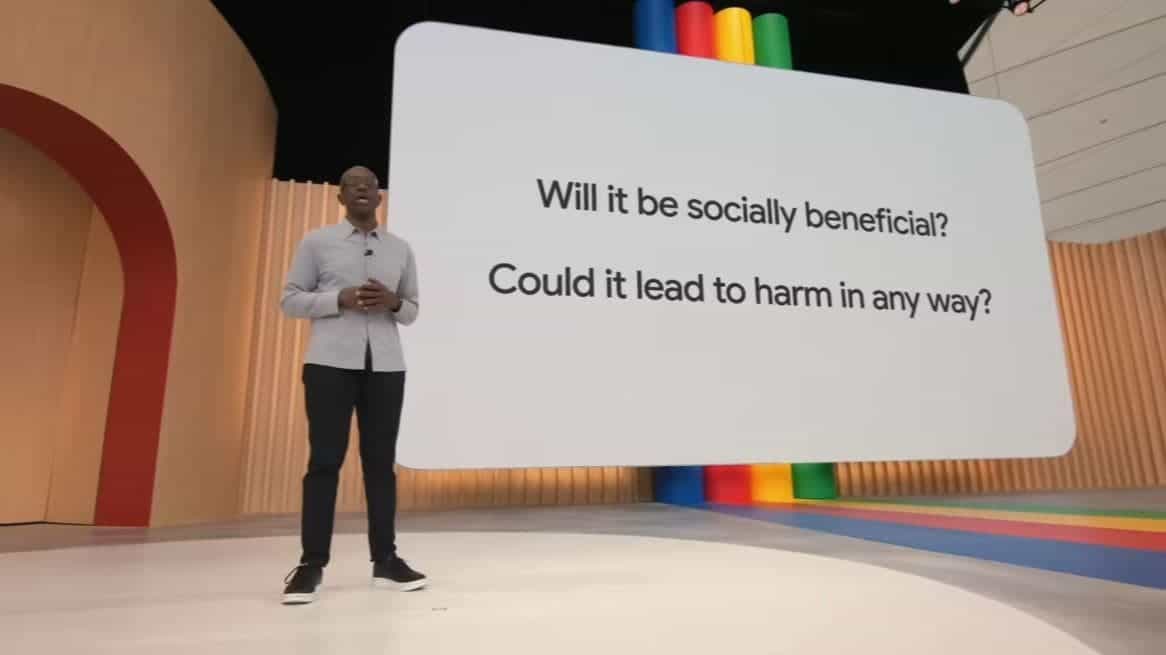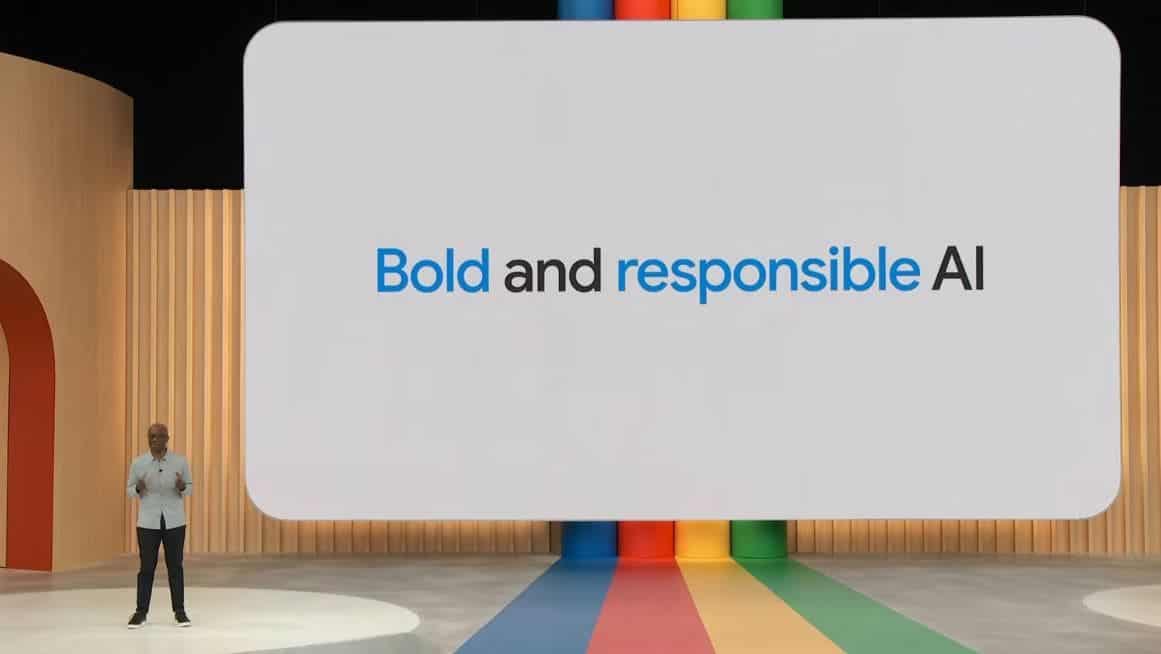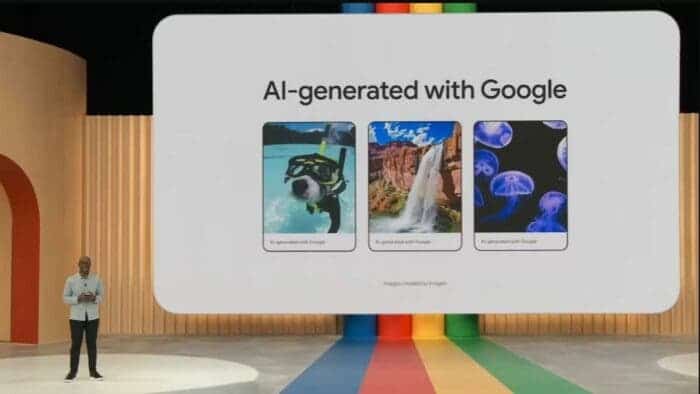The Google I/O event shows Google’s concern for rivalry and also stressed its potential for success. During the ongoing Google I/O event, a huge portion of the main keynote was used to discuss AI and stress Google’s progress in the field. Of major interest was the company’s focus on responsible AI, setting it apart from rivals like OpenAI and Microsoft who grapple with striking a balance between the freedom and regulation of generative AI. James Manyika, the leader of Google’s Technology and Society dept, took the stage during the keynote to shed light on Google’s duty to integrate AI responsibly. This duty remains strong, even as Google unveiled a long list of new services.

Google’s active ideas of responsible AI suggest that the company perceives a certain level of threat from its rivals. However, despite this rivalry, Google’s forward – thinking approach and dedication to responsible AI positions it well to emerge as a strong force in the industry.
“It is also important to acknowledge that AI has the potential to worsen existing societal challenges — such as unfair bias — and pose new challenges as it becomes more advanced and as new uses emerge,” he wrote in a Google blog post. That’s why we believe it’s imperative to take a responsible approach to AI.”
Google’s emphasis on responsibility may be tempting. However, it is possible that this could be all for the show. We have seen many big brands use marketing gimmicks. Also, there is also the claim that Google’s actions may be driven by panic. The company is doing all it can to fix itself as the major force in the AI field.
ChatGPT and Bing put Google in a bad state
As most tech experts observed at the Google I/O keynote, the company seemed to be forced to devise a rivalry speech to ChatGPT and Bing. Of course, we all know that its solution at the moment is well below par. Bard AI fell short and it’s quite bad. However, Google didn’t merely launch a couple of boosts to Bard; instead, it unveiled a long list of new features. The keynote was an incessant stream of generative AI capabilities that would be integrated into Search, Google Workspace, and nearly every other app within Google’s suite. Even Google Cloud didn’t miss out, as it has its own generative AI features. It positions itself as the preeminent Software-as-a-Service solution in the realm of AI through Vertex.

Upon closer look, it appears that Google didn’t just sense a threat. The company actually felt a genuine sense of alarm. In response, the company unleashed a torrent of decent new features, to the extent that it becomes a big deal to keep track of them all. Some of these new adds include:
- Universal Translate
- Generative AI in Google Search
- Google Bard improvements
- PaLM 2
- Google Duet
- Generative wallpapers
In addition, Google aims to persuade its audience that one of the main reasons for its lag in innovation was its duty of “responsibility”. The company says that it put in a lot of effort in its development processes.
Google: Responsibility is key
During the speech, Google dedicated a huge amount of time to discussing the concept of “responsibility”. The speech was also focused on the AI realm. This is a topic that hasn’t gotten as much attention from brands like Microsoft and OpenAI. Google is working on tools to combat the risk of false info being generated by its own AI tech. For instance, it is working on adding metadata that can watermark images as being generated by AI.
The notion of “responsibility” also serves as a good shield for Google. The company released these features in a Labs – style format. They are accessible through a waitlist and Google can claim that the features are available, albeit not to everyone. The company also makes it clear that they are not in their final state at the moment. This game plan allows Google to buy time until they are ready for a full public launch.
Manyika’s speech is much more than just calling for caution. Of course, that is a position that nobody disputes. It is also a tactical move to signal to other brands that Google aims to be the top player in the field. At the moment, that is not the case. Microsoft and OpenAI engage in a race to outdo each other with AI language models. In most cases, they do so without fully checking their limits. Thus, Google aims to bring a new trend and strives to project a sense of calm. The company aims to take a direct link to launch new features that are top – notch.
Issues with generative AI are quite many
If we take a look at the image below, it shows some examples of generative AI. From the images, it is clear that Google still adds a warning in the bottom right corner stating. The warning states that “generative AI may be inaccurate or offensive”. To most people, this is not a new thing in any way. However, this also shows that Google is not fully confident in its progress so far. It appears that Google wants to create the perception of having solved these challenges, even though it may not be the case.

No doubt, if Google has indeed reached a level on par with OpenAI and Microsoft (which remains to be seen), it represents a big leap from where Bard stood not long ago. However, responsibility alone holds limited value if Google’s products are still in a similar position to those of its rivals. While the disclosures related to images are certainly a positive step, the overarching problem of generating or receiving false info through search results has not been effectively resolved, and it appears to have been deprioritized in these announcements.
Nonetheless, there is genuine anticipation to explore Google’s advancements in generative AI. These notable improvements, coupled with features tailored for enterprise applications such as Vertex AI and the integration of genuinely useful features within Search and Google Suite, could potentially position Google in the lead. However, it is also essential to consider the possibility that these announcements might be a marketing spin to compensate for Google’s past shortcomings.





